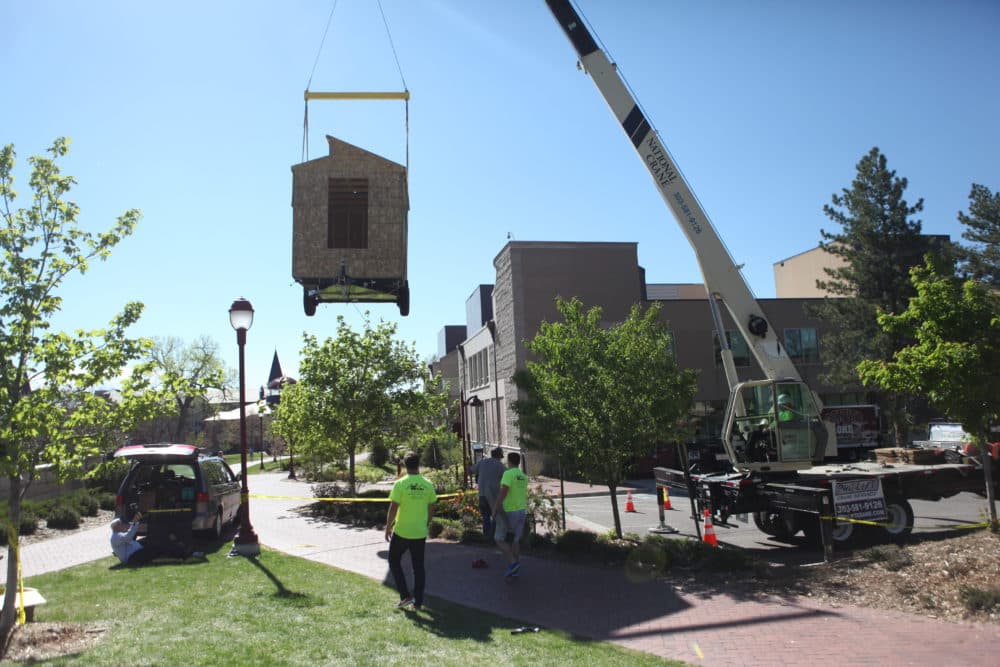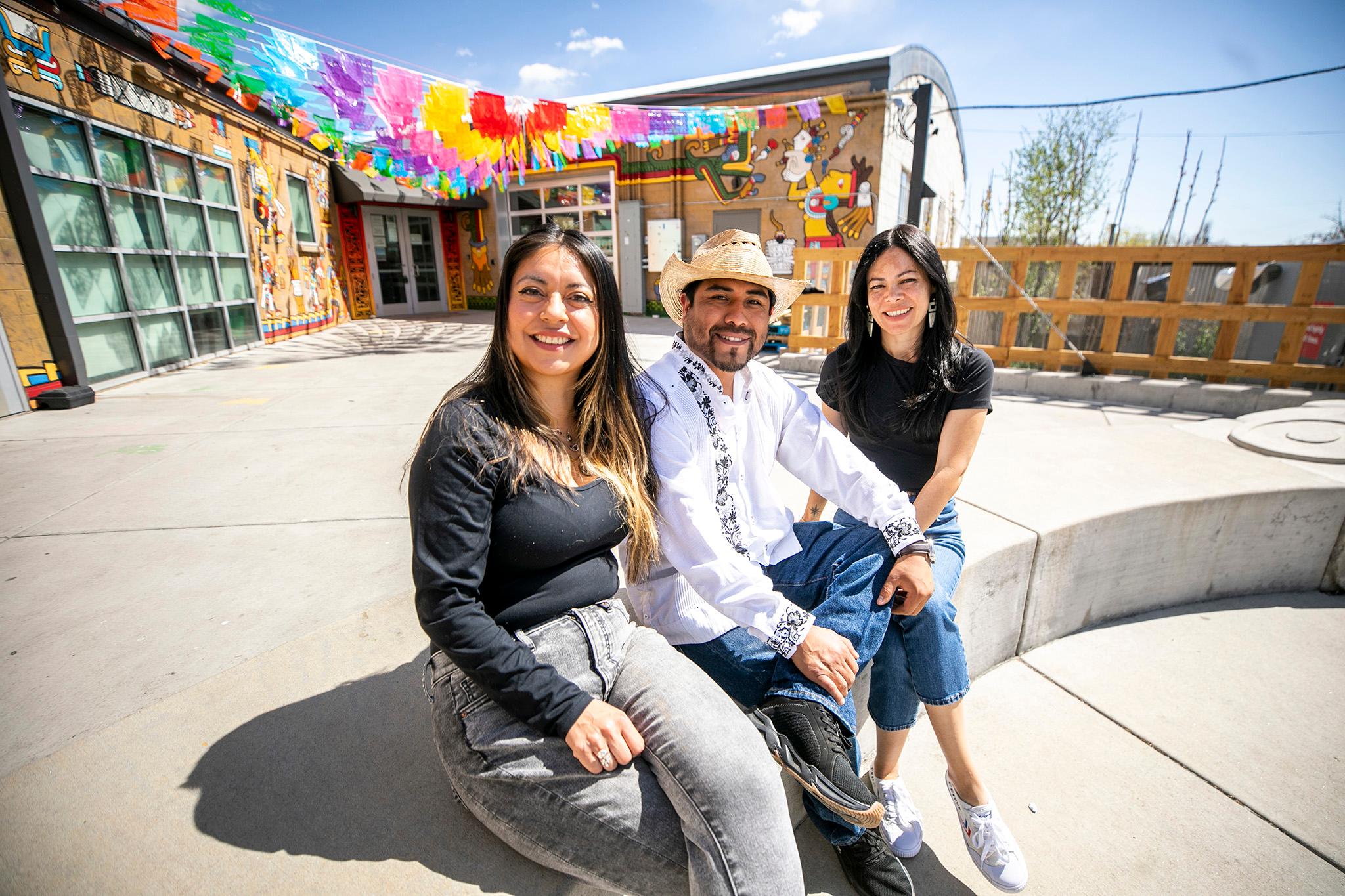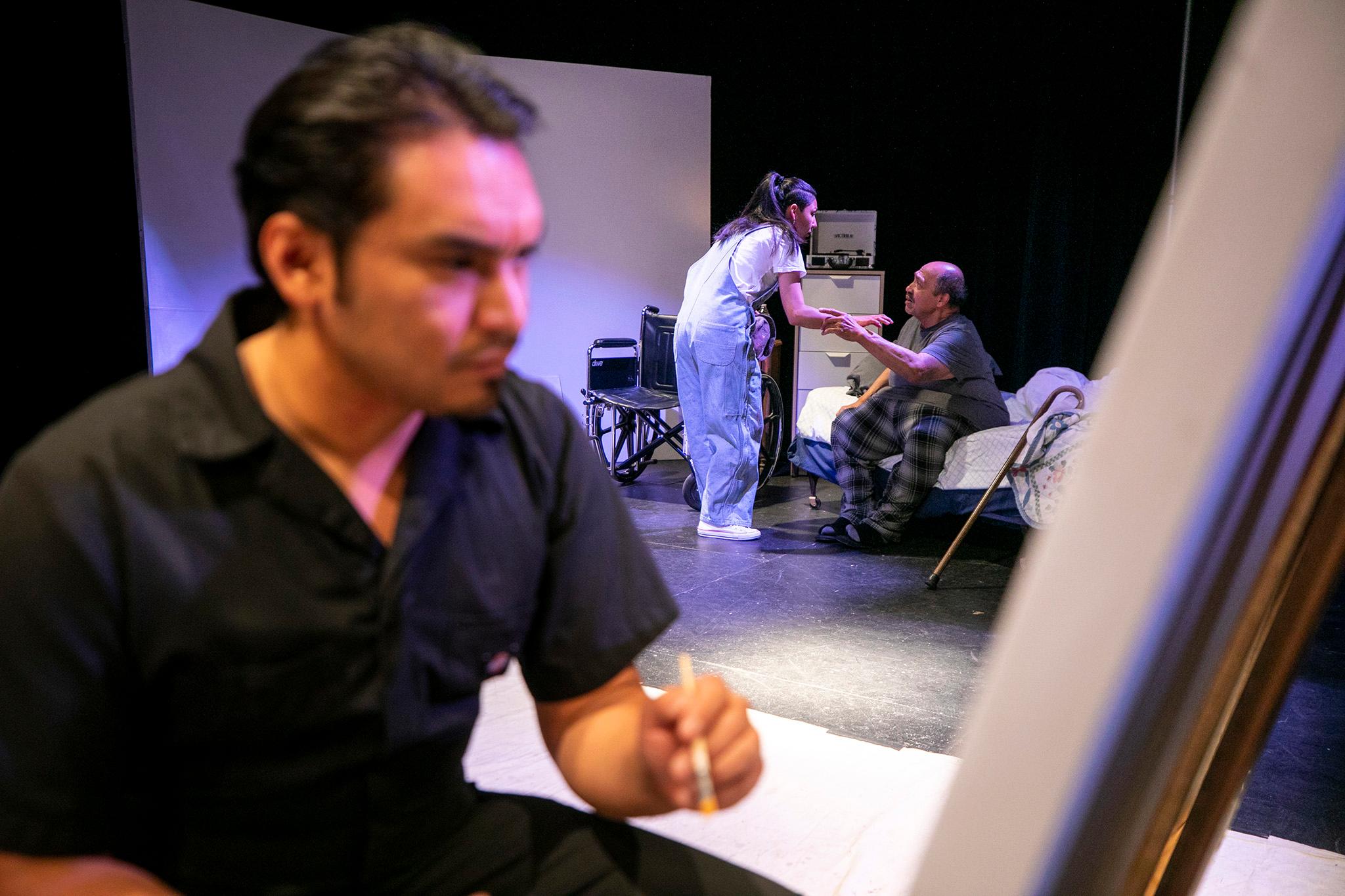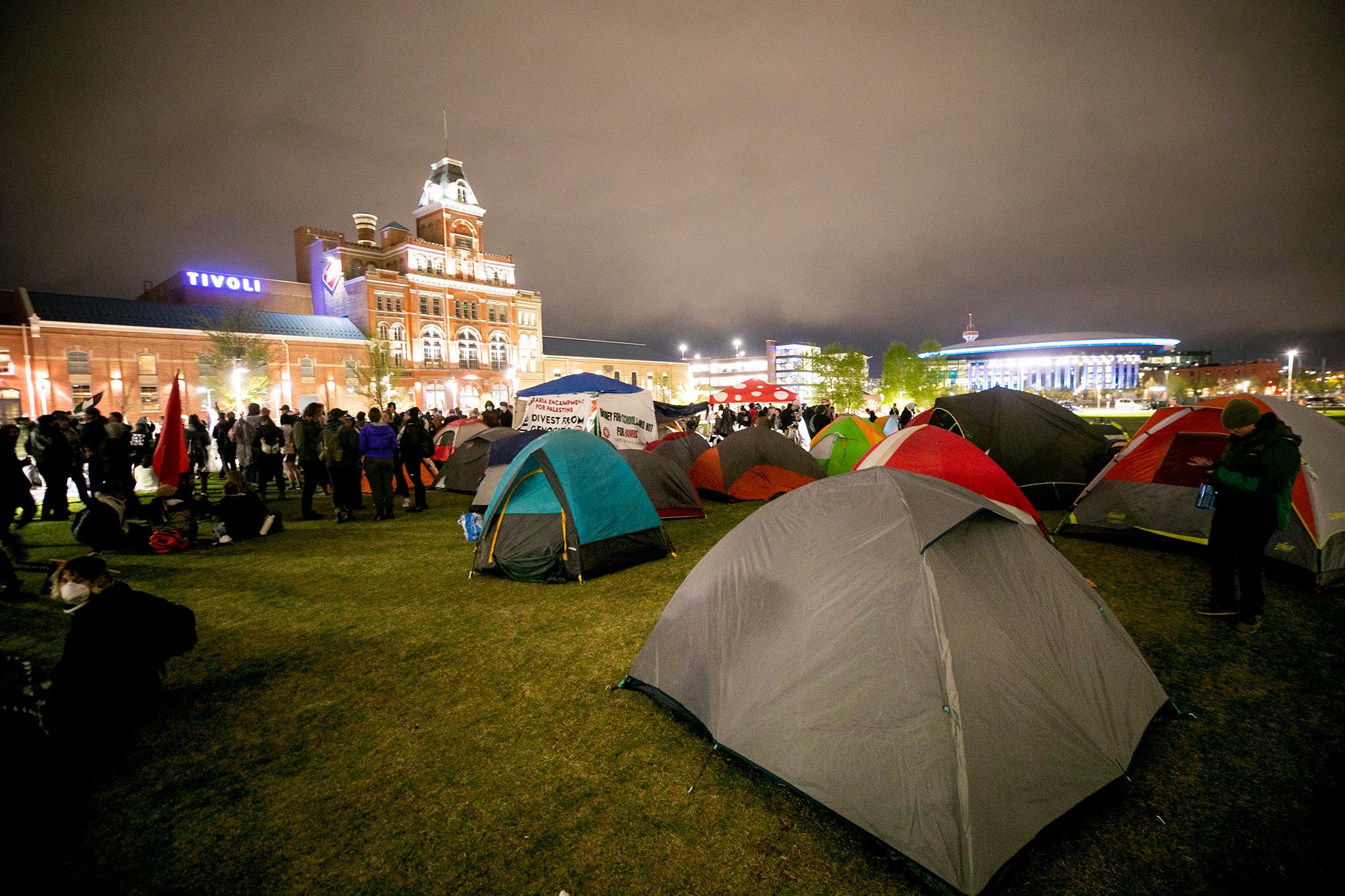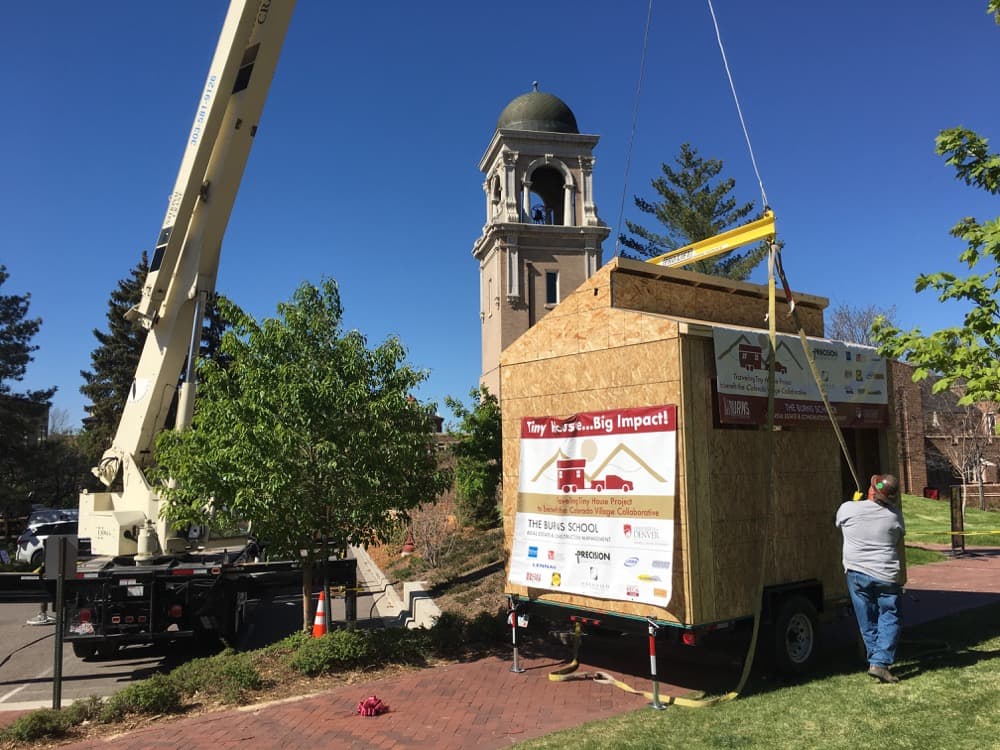
Construction on Denver's first temporary, city-sanctioned village for homeless people should begin very soon. Meanwhile, the organizers of Beloved Community Village have plenty to celebrate.
The Colorado Village Collaborative expects to have a final construction permit by next Friday, May 12, that will allow them to build tiny, temporary houses for about 14 people near 38th and Walnut in River North. City officials confirm they are working out the final details and already have approved the concept.
Meanwhile, the nonprofit collaborative has a major new partner: the University of Denver.
Students and faculty spent the better part of Friday assembling a mobile cabin on campus, lofting plywood walls and a roof onto a trailer base.
"This morning, it was four walls all bundled up on a trailer," said Eric Holt, assistant professor with Franklin L. Burns School of Real Estate & Construction Management.
The home still has lots of work to be done -- it's in the "ugly duckling phase," Holt said -- and DU's involvement will go far beyond just finishing those four walls. The university's philanthropic wing also has promised significant financial and planning help, according to project organizer Nathan Hunt.
"There are going to be probably some pretty deep relationships there, down the road," said Hunt, who works for the Interfaith Alliance of Colorado. (Colorado Village Collaborative also includes representatives from Denver Homeless Out Loud, among others.)
Friday was another example of how the project has captivated Denver. Besides its groundbreaking approval from the city government, the project also will be part of TEDxMileHigh.
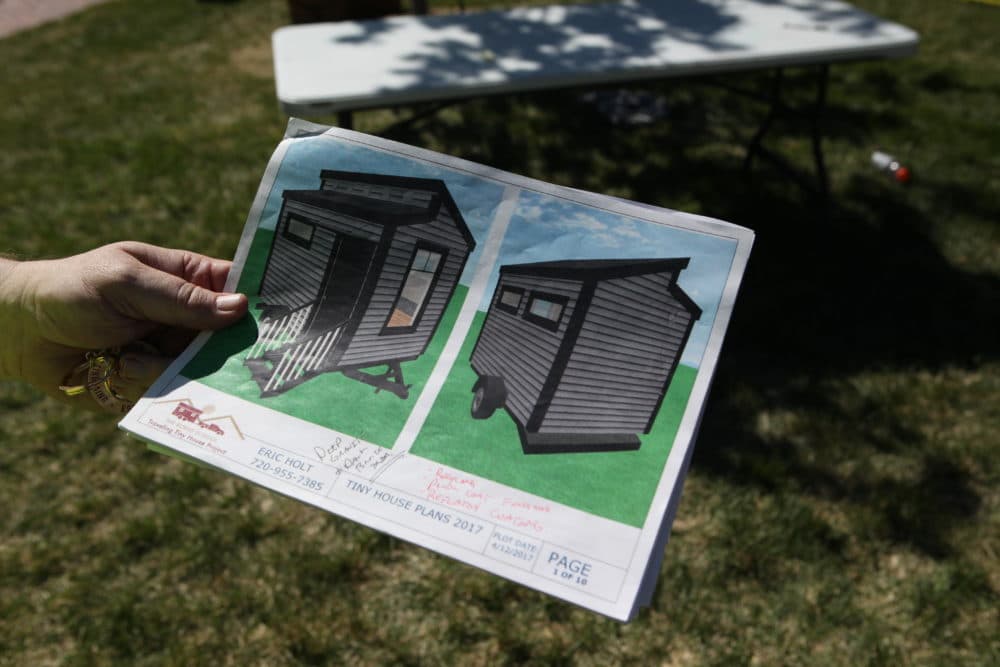
The village, of course, will only offer accommodation for a slim fraction of the 5,000-plus people estimated to be living without housing in the Denver metro. It will also be temporary, likely to be approved only for a six-month stint by the city.
However, Colorado Village Collaborative already has its next site in mind: It is working with St. Andrew's Episcopal Church to build a previously planned tiny village east of downtown.
It's unclear whether the home being built by DU students and faculty will meet the city's requirements for these projects. If it doesn't, it still could be auctioned or used as a traveling demonstration lab for the project, organizers said.
A range of construction and real-estate companies provided materials or support on Friday, including U.S. Building Supply, Tilery Roofing, Precision Building Systems and Oakwood Homes.
Also: Pro Lift Crane Service donated equipment and a crew to hoist the unit around campus.
"I bet you didn't know these tiny homes could fly too," Hunt quipped as the home soared off the quad at the end of the day.
